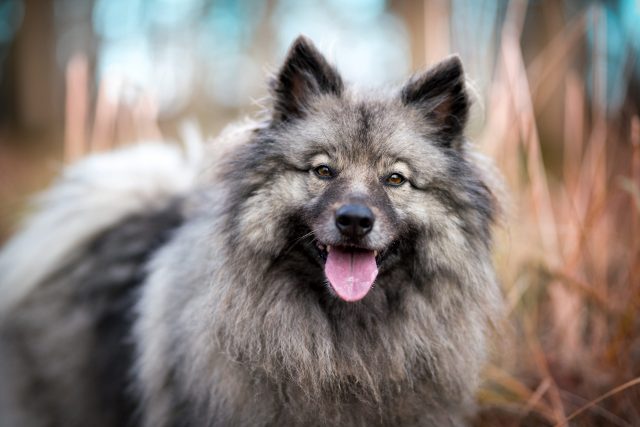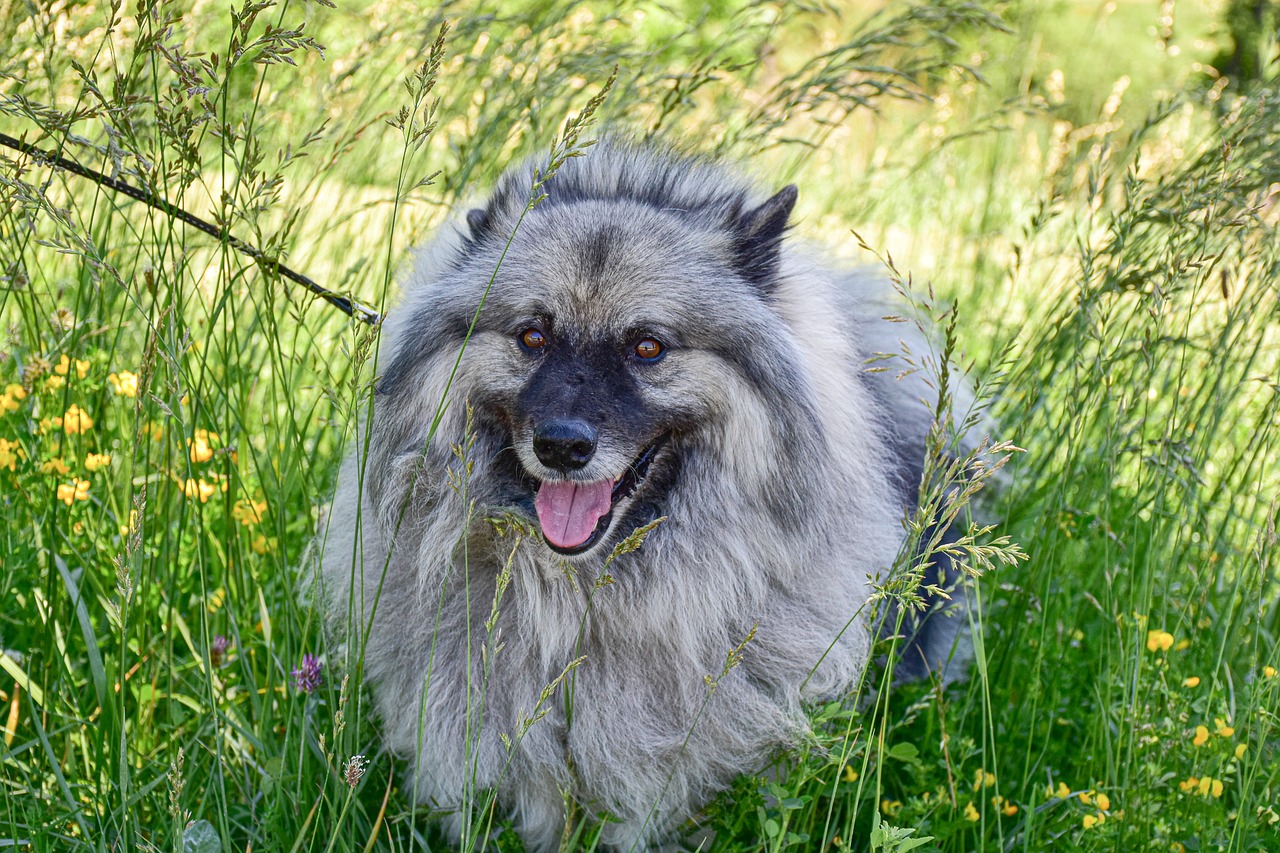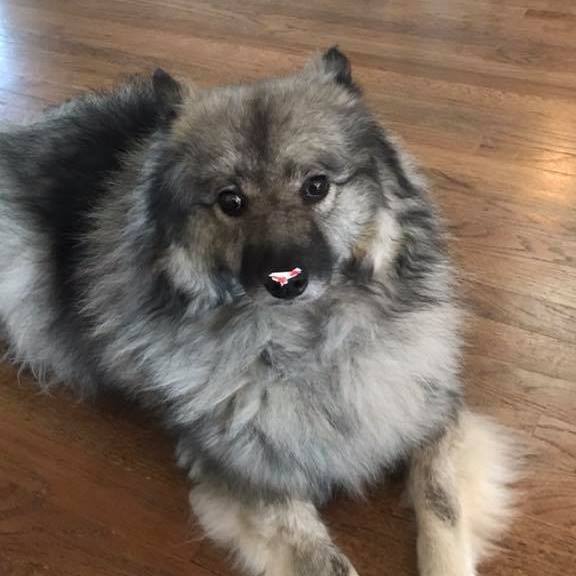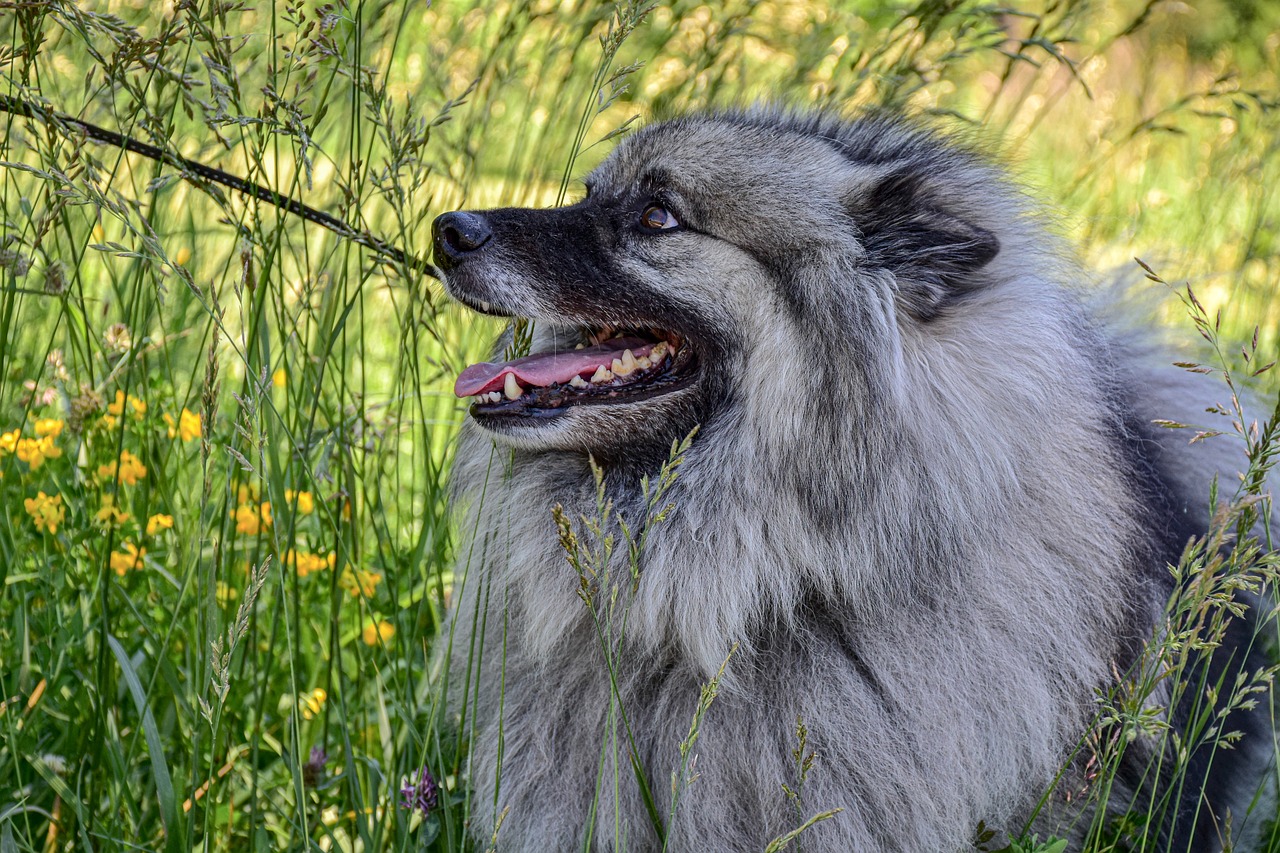Keeshond
No products found which match your selection.
Shelter Dog Meal Donation Count:
No products found which match your selection.
The Keeshond is a charming, fluffy companion with a cheerful disposition and an eagerness to be part of the family. Their intelligence, moderate exercise needs, and friendly nature make them ideal pets for a variety of living situations, including apartments. Regular grooming is a must to keep their luxurious coat in top condition. A Keeshond’s loyalty and affectionate behavior make them a delightful addition to any home looking for a loving, sociable dog.
Keeshonds are adaptable, fitting well into family life and various living situations. They are mainly known for being great companions for children due to their gentle and playful nature.

Originating in the Netherlands, the Keeshond symbolized the Dutch Patriot political party in the 18th century. This breed has been a companion and watchdog on Dutch vessels and farms for centuries.




Generally a healthy breed, but prone to hip dysplasia, patellar luxation, and specific eye problems. Regular veterinary check-ups are essential to maintain good health.
Their thick double coat requires regular brushing, several times a week, to prevent matting and reduce shedding. Regular ear cleaning and nail trimming are also necessary.
Keeshonds need daily exercises like walks and play sessions but are not overly demanding. Mental stimulation through games and training helps keep them content.
They respond well to positive reinforcement techniques. Early socialization and obedience training are recommended to harness their intelligence and eagerness to please.
A well-balanced diet is crucial for their age, size, and activity level. Regular feeding schedules and avoiding overfeeding are essential to prevent obesity.
The Keeshond is a delightful breed, ideal for those seeking an intelligent, affectionate, and moderately active canine companion. Their unique appearance, coupled with their engaging personality, makes them an excellent addition to many homes. Regular care in health, grooming, exercise, and training will ensure that your Keeshond lives a happy, healthy life as part of your family.
The Keeshond is a generally healthy and robust breed, but like all dog breeds, they are prone to specific health issues. Awareness of these common health concerns and the recommended tests can help maintain their well-being and ensure early intervention if needed.
Regular health check-ups and the aforementioned tests are crucial for detecting and managing common health issues in Keeshonds. A proactive approach to their health can ensure a long, happy, and healthy life for these affectionate and loyal companions. Owners should work closely with their veterinarians to tailor a health plan best suited to their individual Keeshond's needs.
The iHeartDogs Free Rx Discount Card Program is a pet prescription discount card that can help you save money on your furry friend’s medications. The card is free to sign up for, and you can use it at participating pharmacies nationwide. To use the free program, simply show the card to your pharmacist when you pick up your pet’s prescription. The pharmacist will then scan the card, and you will receive a discount on the price of the medication.LEARN MORE
Caring for a Keeshond, like any pet, involves various expenses. The annual cost can vary depending on your location, the dog’s health, and the level of care you choose to provide. Here’s a breakdown of typical expenses:
Total Estimated Annual Cost:
$2650 - $6400
It's important to note that these figures are estimates and can vary. Also, the first year of owning a dog can be more expensive due to one-time costs like spaying/neutering, initial vaccinations, and training. Regular budgeting for your dog's needs and an emergency fund for unforeseen costs are essential for responsible pet ownership.